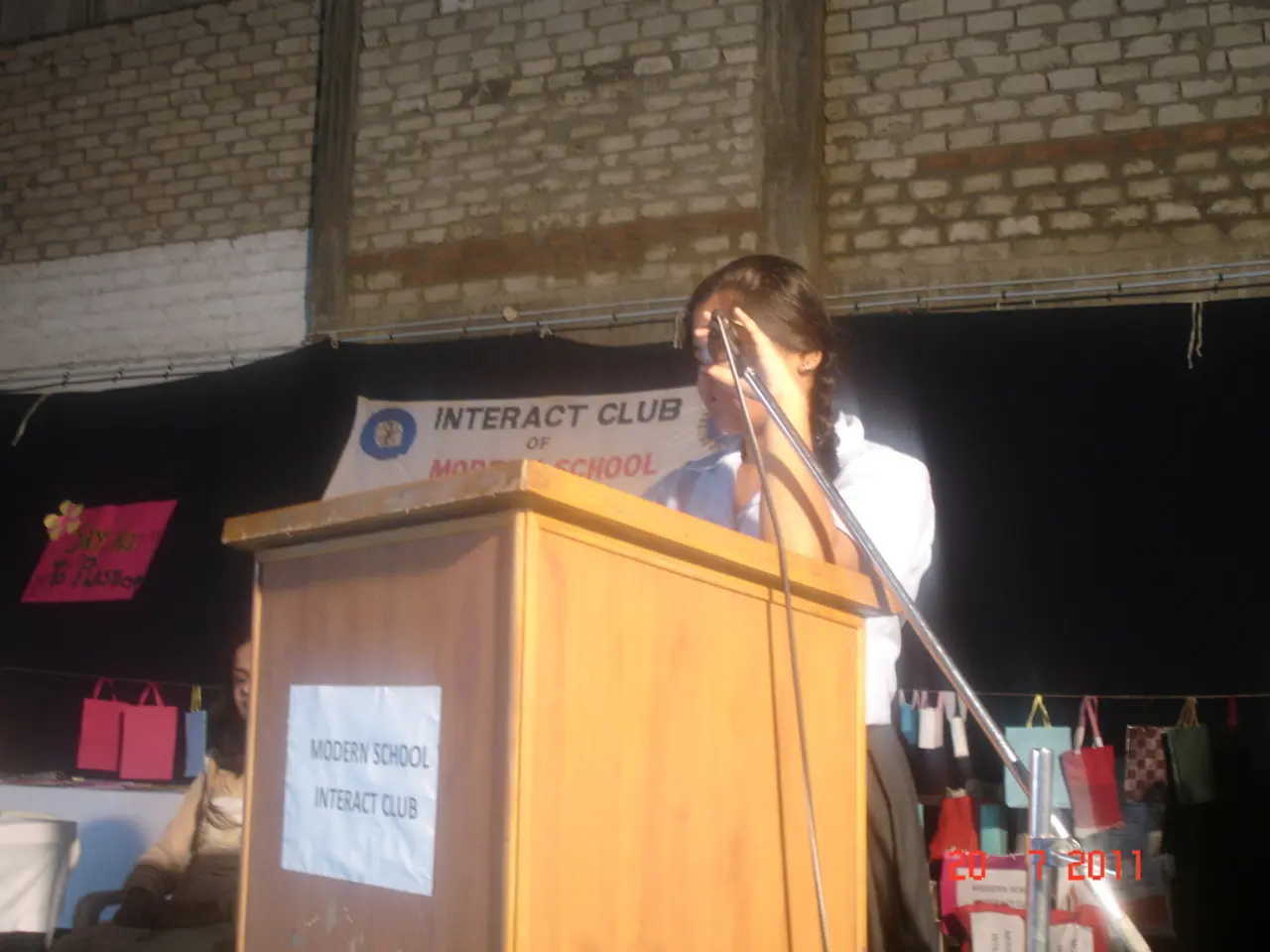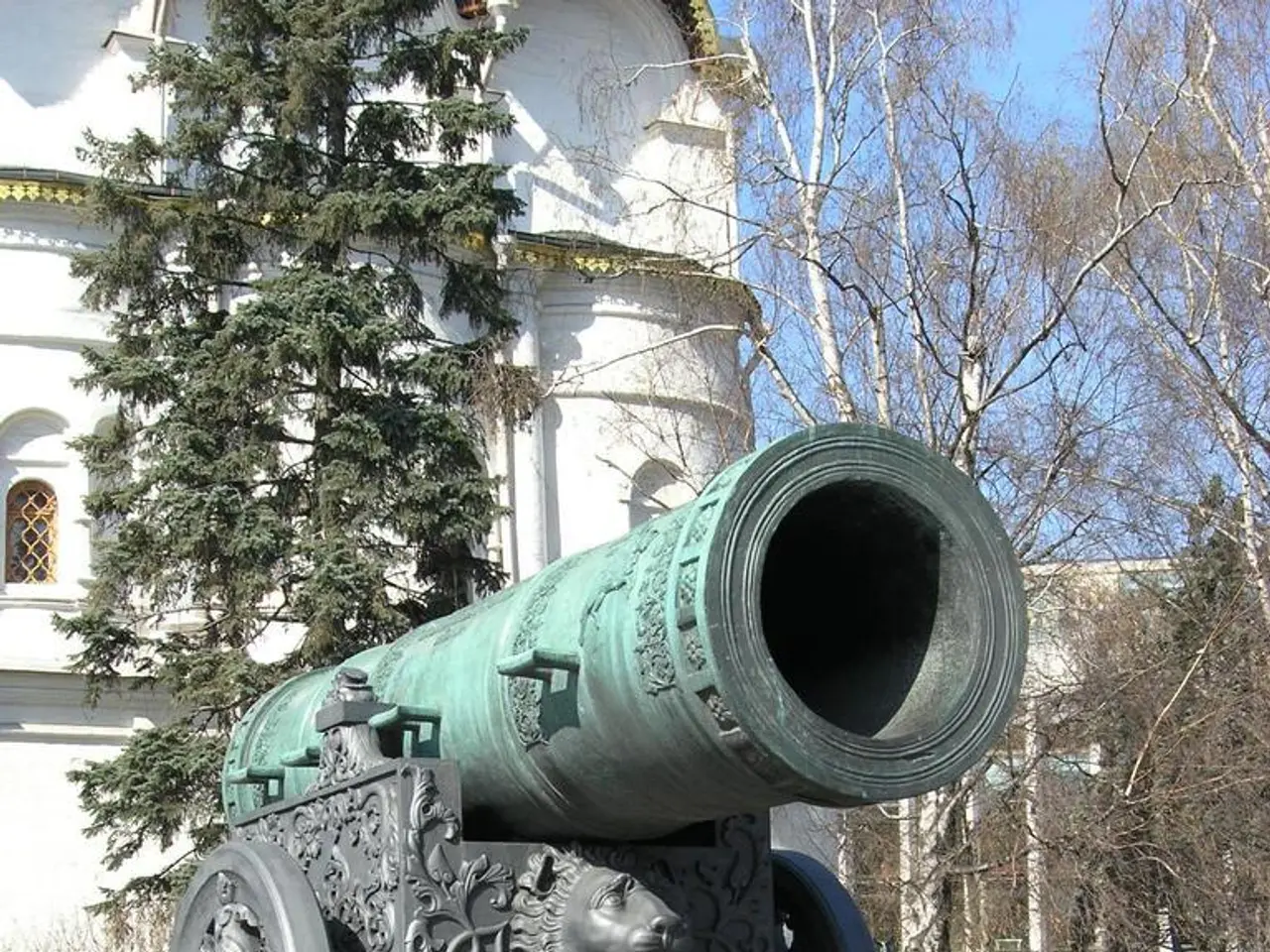Border Patrolling by Polish Citizen Militias Seeks Continuation - Border Patrol Duty: Polish Citizens' Desire for Continued Border Guarding
In the heart of Europe, Poland has found itself at the centre of a contentious issue, with right-wing citizens' militias taking on the role of vigilante border patrols. These groups, driven by nationalist opposition, have been patrolling the border with Germany, particularly amid heightened migration tensions in 2025.
Led by figures like Robert Bakiewicz, the leader of the 'Movement for Border Defense', these militias have been conducting mobile patrols to halt vehicles and search for migrants. Their activities are framed by right-wing opposition parties such as Law and Justice (PiS) as necessary to supplement what they perceive as lax government enforcement and excessive compliance with migrant acceptance demands from Germany and the EU.
However, the Polish government, particularly under Prime Minister Donald Tusk and Interior Minister Tomasz Simoniak, views these militias as unauthorized paramilitary groups that disrupt official border operations. Simoniak has warned that any illegal exercise of authority by these groups will face strict legal consequences. Official representatives accuse these militias of hindering the Border Guard’s work, effectively "paralyzing" legitimate state security efforts.
The militias' activities deepen political divides, with the ruling centrist government emphasizing orderly migration management and the opposition invoking nationalist sentiments against migrant influx. These groups operate in a legal gray area or outright outside the law, given that border enforcement is an exclusive state prerogative. Polish law reserves border control to the Border Guard and official state security forces; unauthorized citizen patrols lack legal sanction and are potentially subject to penalties.
Despite these challenges, the right-wing citizens' militias, such as the "Movement for the Defense of Borders," continue to recruit volunteers to stop vehicles at the border with Germany and search for migrants. The ruling party PiS and its supported future president Karol Nawrocki continue to praise these self-appointed patrols.
In response to the German border controls, the center-left government in Warsaw ordered the controls at 52 crossings with Germany and mobilized 5,000 soldiers to reinforce official border security. The Polish border guard's controls are being conducted along the border with Germany and Lithuania, and the activists' mobile patrols continue unabated, suggesting a standoff between the official border guard and the unofficial militias.
This ongoing conflict over migration and border sovereignty at Poland’s frontiers highlights the political tensions that persist in the region. The activists, led by figures like Bakiewicz, continue to assert their role as necessary defenders of the nation, while the government maintains its stance that these militias are lawless and disruptive. The future of these self-appointed border patrols remains uncertain, as the legal and political landscape continues to evolve.
- In the midst of continuing political tensions, EC countries are debating the role of migrant influx and employment policy within the broader context of border control, with right-wing groups in Poland advocating for stricter migration policies.
- The ongoing standoff between the official Polish border guard and right-wing citizens' militias like the "Movement for the Defense of Borders" raises questions about the future of unauthorized paramilitary groups operating under the guise of nationalist opposition, particularly in regards to their legal status and impact on the employment policy of border control.







